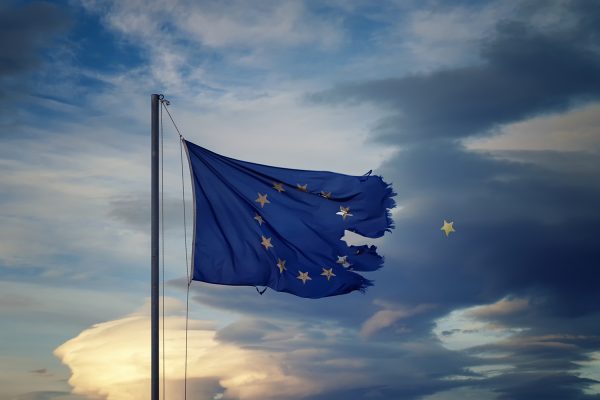
You would think after it survived the euro crisis, commentators would be a little more cautious about predicting the EU’s demise. But no.
As usual, American and British media are the worst. Their typical commentary is so sensationalist, it sounds just like Russian propaganda.
- BBC: “Coronavirus: Can EU get a grip on crisis?”
- Bloomberg: “Can the European Union survive the coronavirus?
- Breitbart: “Economists predict potential end of the euro due to coronavirus”
- Daily Express: “End of the EU?”
- Foreign Policy: “The EU is abandoning Italy in its hour of need”
- NTV: “The idea of a united Europe has crashed”
- RuBaltic: “Coronavirus calls the European Union’s existence into question”
- Sputnik: “COVID-19 plunges eurozone into crisis with European currency on verge of exploding”
- The Guardian: “The coronavirus crisis has brought the EU’s failings into sharp relief”
- The Telegraph: “With borders going up around Europe, coronavirus is devastating the EU’s superstate pretensions”
- The Wall Street Journal: “Europe tries to salvage decades of integration”
- Zero Hedge: “European Union: The end?”
- Center for American Progress: “Coronavirus may be the EU’s hardest test yet”
EU action
The EU wasn’t set up to deal with pandemics, so this one can’t be a “test”.
It is a challenge — to the bloc’s open borders and solidarity between member states — but the EU is rising to it.
Russia made the headlines when it donated face masks and some 600 ventilators to Italy, but France and Germany alone have donated more masks and protective suits. As for Russia’s supplies, an Italian official told La Stampa up to 80 percent of it may be useless.
Germany is also taking in patients from northern Italy, where hospitals have been overwhelmed.
The European Commission has:
- Created a stockpile of medical equipment, including ventilators and protective masks;
- Harmonized standards for medical equipment, disinfectants and sterilizers in order to speed up regulatory approval; and
- Suspended restrictions on state aid to allow member states to bail out businesses and pay the salaries of workers.
The commission is also subsidizing a vaccine manufacturer in Germany, paying for repatriation flights and increasing emergency assistance to Greece, which fears an outbreak of coronavirus disease in migrant camps.
The European Central Bank (ECB) is:
- Purchasing €750 billion worth of corporate and government bonds to inject money into the economy;
- Providing cheap loans to banks, especially if they loan to small and medium-sized businesses; and
- Relaxing buffer requirements for banks.
So much for “abandoning” anyone in their hour of need.
Familiar disputes
The intergovernmental institutions of the EU have been the slower to react. Familiar battle lines have been drawn in the European Council between Austria, Finland, Germany and the Netherlands on the one hand and France, Italy, Portugal and Spain on the other.
The southerners argue the crisis calls for the joint issuance of eurozone debt and the creation of a Europe-wide unemployment insurance system. Northerners are frustrated that Italy and Spain, which have seen the worst coronavirus outbreaks in Europe, didn’t do more to consolidate their public finances during the economic recovery, so they wouldn’t need help from their neighbors now (again).
They are also wary of setting up something as ambitious and long-term as eurobonds in the haste of a pandemic response.
The northerners argue for conditional aid drawn from the European Stability Mechanism (ESM), the bailout fund created in the wake of the euro crisis. Italy is reluctant to tap into the fund, arguing it would “stigmatize” recipients.
Finance ministers need to agree what, if any, conditions are tied to ESM support.
Urgent, not desperate
When hundreds of people are dying from coronavirus in Italy and Spain every day, taking one or two weeks to hash out the nuances of financial support may seem like a long time.
The other way to look at it is that it took European leaders almost no time to agree a €500 billion fund that was designed to help countries weather financial crises could be used to cope with the effects of a health crisis instead.
The need is urgent, but not desperate. If Italy and Spain needed the money immediately, they wouldn’t be spending precious time arguing over the source of European aid. Some time in April, a combined €1.25 trillion from the ECB and ESM should be available to them and other nations. On top of the hundreds of billions of euros countries are spending themselves to prevent an economic depression.
If this counts as “the end of the EU,” I’d hate to see English-language commentators describe a European Union that was really missing in action.
